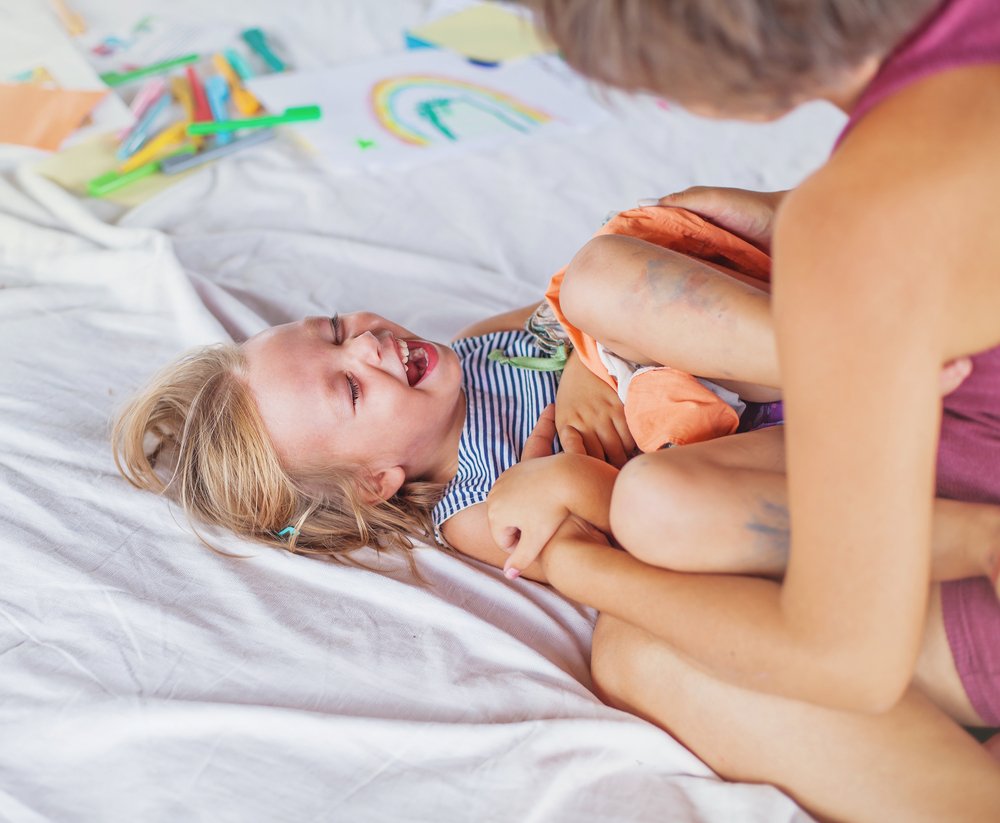Key points:
1. Laughter and smiles are vital for child development.
2. Sense of humor nurtures self-esteem, empathy, and social skills.
3. Babies respond to visual and physical humor like funny faces and tickles.
4. Toddlers enjoy surprise elements, nonsense words, and playful silliness to develop their sense of humor.
Laughter and smiles are some of the most basic human behaviors. Babies smile within hours of being born in response to a warm sensation or a sweet smell, but laughter takes a bit more time to develop as its mechanisms and the concept of sense of humor are more complex.
As you probably already discovered, babies and toddlers learn a lot through imitation, and the development of a sense of humor is no different. Research has shown that a sense of humor is nurtured at home and each silly event helps foster this wonderful trait.
Why is the sense of humor so important?
Its benefits include the development of healthy self-esteem, empathy, and friendships; and it helps people laugh at themselves and become accepting of imperfections. Sense of humor enhances social development in children, as it helps them learn to express themselves with others. And not only that, but research has shown that people with this sense are happier and more optimistic, can handle differences and adversities well, experience less stress, and are at a lower risk for depression. What’s more, experts have identified that a robust sense of humor is a natural immune system booster!
So what can you do to develop your little one’s sense of humor?
Babies
Although babies don’t quite understand spoken humor just yet, they are aware of your smile and what makes you happy. Babies laugh at a very young age and, as young as 9 months old, they can begin to comprehend visual (silly faces) or physical (tickling) jokes. Try these fun games and laugh together:
- Make funny faces and sounds: This type of visual humor can elicit laughter and smiles in your baby. Since babies sense your joy, they are likely to imitate you.
- Tickle their bodies or blow raspberries on their bellies: Babies are also very responsive to physical simulations which can make them laugh.
- Get silly and playful: Unexpected situations like placing your baby’s diaper on a teddy bear’s head can be very funny. Between 9-15 months of age, your little one begins to understand this and it may elicit some chuckling.
- Play Peek-a-boo: At around one year of age, Peek-a-boo becomes a very exciting game. When your little one cracks up during this game you can tell their intellectual development is flourishing. Babies come to realize that when mommy or daddy hides, they will come back right away, but it is still a tense situation. But, when they reappear the tension is released in the form of laughter and the situation becomes a fun game.
Toddlers
Toddlers have a steadier grip on humor and most surely love the element of surprise. This is why Peek-a-boo or unexpected tickles, hugs, or situations poke their funny bone. Toddlerhood includes a greater understanding of the spoken language and greater knowledge of how the world works. This means that rhymes, nonsense words, and acting silly and goofy will make kids burst into giggles. So try out these games:
- Ignore the obvious: Pretend you can’t find an object that is in plain sight or mix up objects such as a spoon and a fork. “I will eat my ice cream with this fork” and have it fall back into the plate before it reaches your mouth.
- Continue making funny sounds and faces: Invite your little one to make their own, and also dance to the rhythm of your sounds.
- Make inanimate objects talk: For example, have your toddler’s sandwich talk or their pajamas tell a story.
- Play chase, tickle, kiss: Chasing games are a great way to crack your little one up. Plus, it is a great way to bond and get active.
- Dress up in a goofy manner: Visual humor is very entertaining for toddlers. Wearing a silly hat, clothing, or shoes on your hands is a great way to evoke laughter.
Remember that you do not need to be a natural comedian to foster your baby’s sense of humor. It is very easy, all you need to do is be open to playful situations and laugh at yourself. Don’t be afraid to be silly; modeling humor is the best way to teach your little one about it. Then, with time, you can create funny traditions and continue fostering a humor-rich environment at home.








